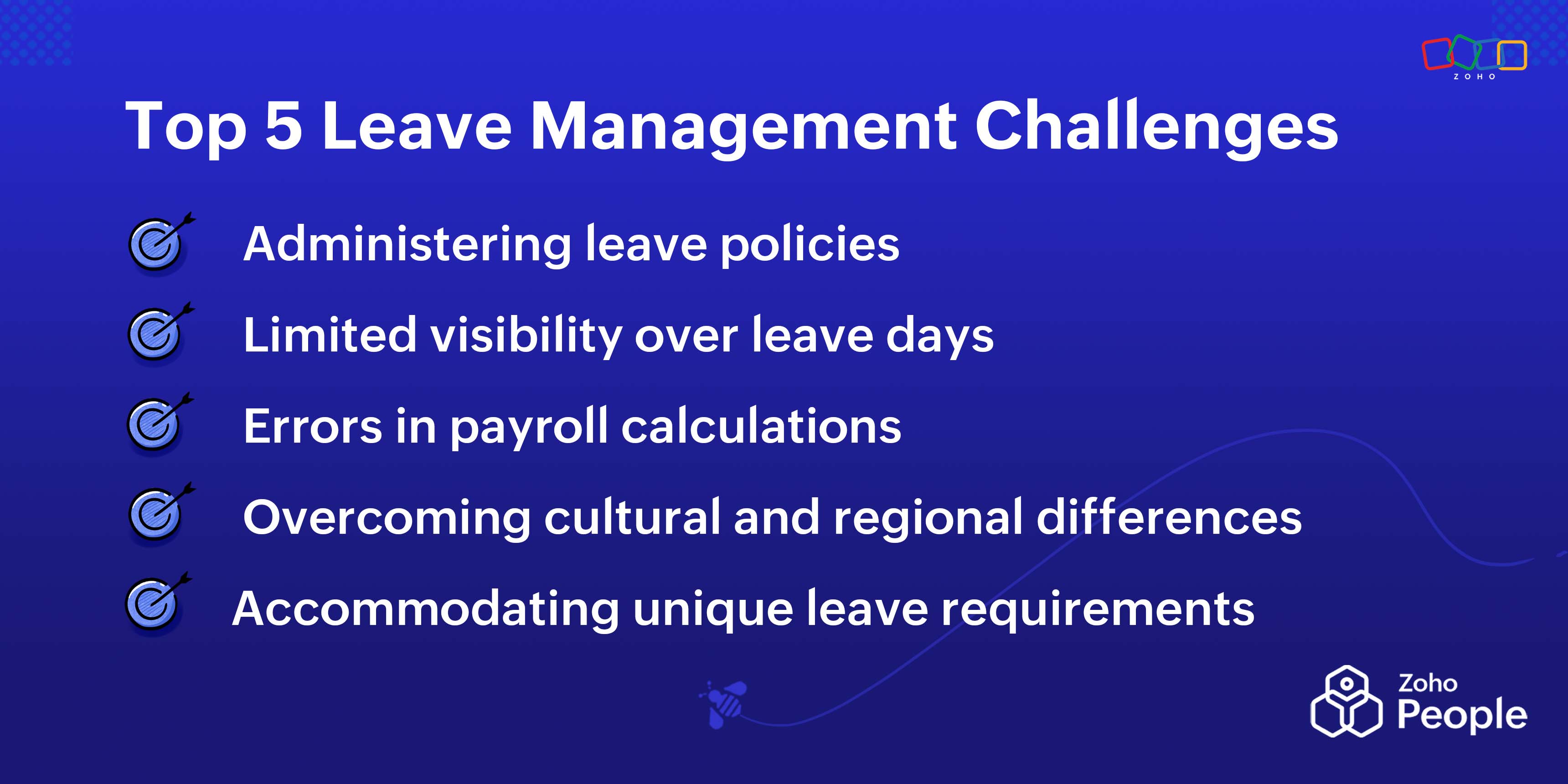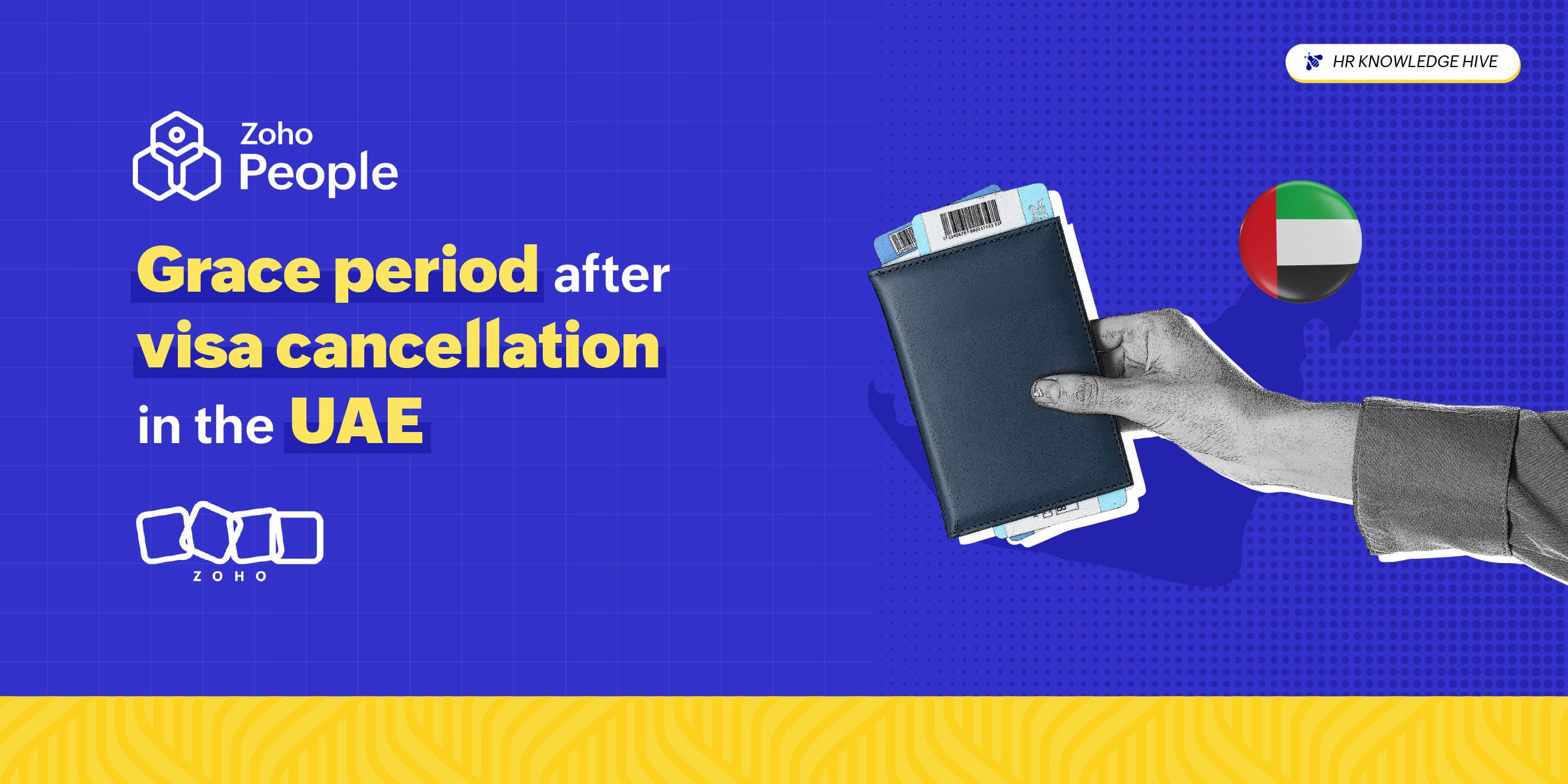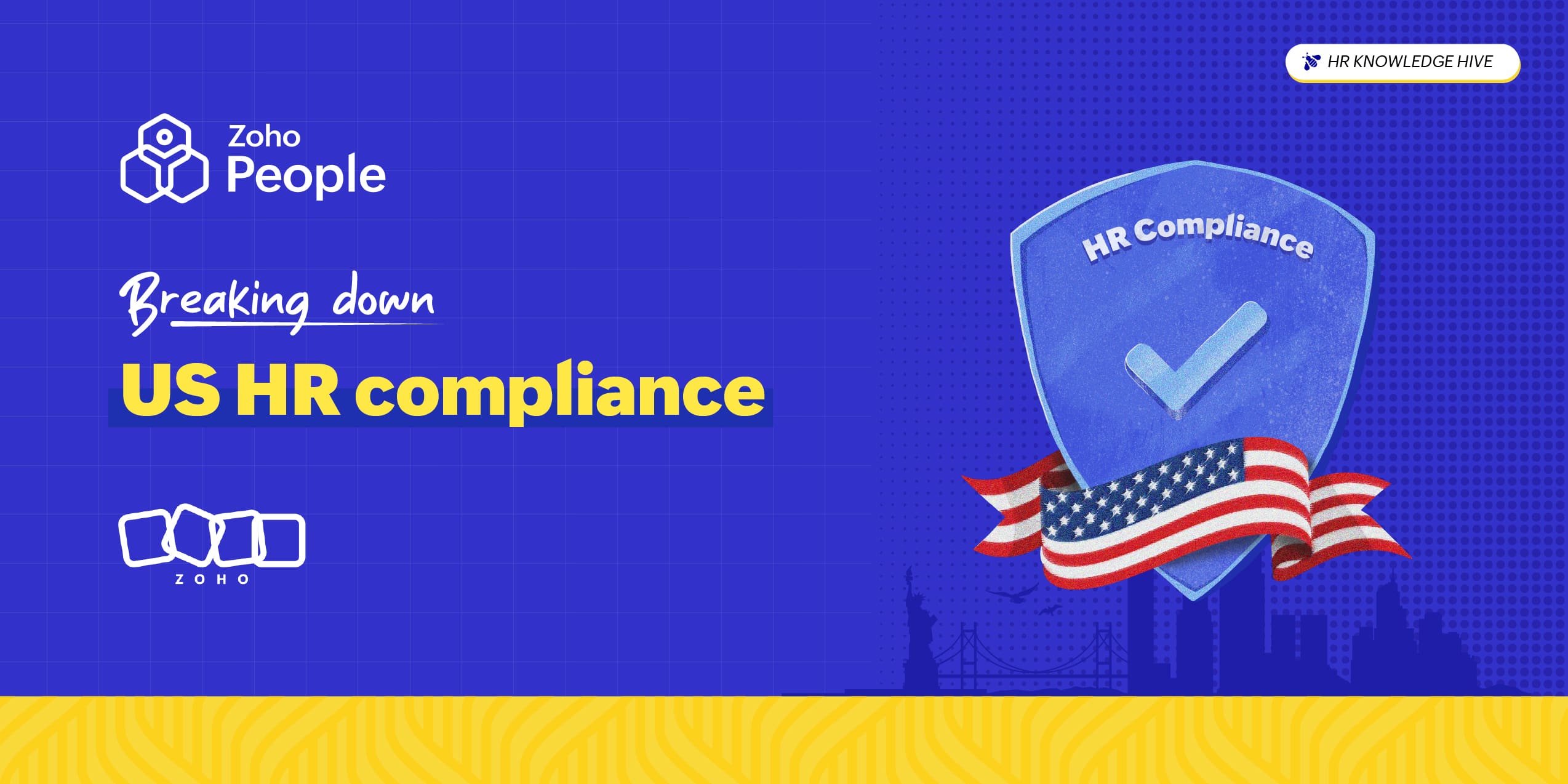- HOME
- More
- On Zoho People
- Top 5 challenges associated with leave management: How Zoho People can help
Top 5 challenges associated with leave management: How Zoho People can help
- Last Updated : April 28, 2025
- 1.1K Views
- 6 Min Read

The importance of having a proper system to track employee leave days cannot be overstated. With so many leave types—including sick leave, casual leave, privilege leave, bereavement leave, and sabbatical leave—managing them all can be exasperating for HR teams, managers, and employees.
In addition to this, facing repeated issues with leave requests can affect employee satisfaction, as these problems suggest that their organization doesn't value their work-life balance. Compliance is another aspect that's impacted when employee leave days are not managed properly, since almost every country has labor laws that regulate leave benefits. Let's look at the five most common leave-related challenges and see how Zoho People can help you establish a well-defined leave management system.

Challenge #1: Administering leave policies
When you don't have a proper employee leave system in place, enforcing your leave policies can feel impossible. Many employees may not have any idea about the leave they are entitled to and how accruals and carryovers are managed. Managers may also misinterpret leave policies and wrongly approve or reject requests.
When leave days are managed using emails or spreadsheets, there are higher chances for miscalculated balances, and employees may end up receiving more or fewer leave days than necessary.
How Zoho People can help
Zoho People's leave management system allows HR admins to define and configure their leave policies so that all employee leave time is managed in line with their organizational policies and regional leave laws. It comes with a set of leave types including sick leave, casual leave, and maternity leave, which can be enabled, disabled, or customized. New leave types can be added in just a few steps, and HR teams can even decide to apply particular leave types to a specific department, designation, role, gender, or level of experience.
Similarly, leave days can be credited to employees in parts or all at once. For instance, something like casual leave may be credited as one leave per one month, and sick leave may be credited to all at once during the beginning of the calendar year. Further, unused leave balances may be defined to be carried over to the next year with an expiry date or be set to lapse at the end of the year. These are some of the many settings that can be configured.
Once leave policies are defined, HR teams can set approvals so that when employees raise a leave request through the system, managers are notified. They can approve or reject the request, and the system will adjust the employee's leave balance accordingly.
Challenge #2: Having less visibility over leave days
Lacking a proper system for employee leave time can be incredibly dangerous, as your organization won't be able to stay on top of issues and trends that may hurt employee productivity. For instance, a lot of your employees may take frequent, unscheduled time off, and you may not even be aware of it. Managers may find it challenging to allocate projects and other tasks when they don't know which of their team members are available and not available. When employees don't have visibility into their leave balances, they may end up taking more or less time off than they should.
How Zoho People can help
Zoho People comes with a variety of reports that offer the insights that HR teams require to have better control over their employee leave days. The daily leave status reports provide a quick snapshot of which employees are on leave and what type of leave they've already used. The leave type summary report helps HR teams stay on top of the leave details of each employee for every leave type. Similarly, managers can make use of the resource availability report to stay informed about team member availability. Since this particular leave report displays employee leave information over a month, managers can also know which employees use leave time frequently.
Employees can also stay on top of their leave balances using Zoho People. The employee leave dashboard displays the number of available and used leave days under each leave type. Employees can apply for leave and even convert their absences into leave in just a few steps. They can also use the system to stay informed about their upcoming holidays. All of this information helps employees effectively plan their time off and avoid unplanned absences.
Challenge #3: Encountering errors in payroll calculations
Tracking leave days through spreadsheets and emails puts organizations at a higher risk of making errors in payroll calculations. Entering employee leave data manually can be prone to human errors. HR personnel may sometimes overlook a few leave applications or miscalculate the leave balances. Without a proper system, employees themselves may forget to apply for leave officially if they informally got their leave days approved. All of these issues can end with you paying your employees more or less than required, which paves the way for compliance issues and hefty penalties.
How Zoho People can help
When employees start applying for leave through Zoho People, all of their leave data gets documented in a single, centralized location that the HR team can access from anywhere with suitable access controls and permissions. Zoho People also works in sync with Zoho Payroll, our comprehensive payroll management software. The LOP report used for payroll calculation can be pulled to the payroll system in just a single click. The loss of pay report calculates employee loss of pay based on the pay period settings that you define while configuring your leave policies. Similarly, the leave data for the payroll report shows all the necessary data required for payroll calculation, including the total number of working days, payable days, loss of pay days, and cashed-in leave days within the selected pay period.
Challenge #4: Overcoming cultural and regional differences
If your organization has multiple locations around the world, or if you have a diverse workforce, employee holiday and leave needs may differ. For instance, in India, national holidays such as Republic Day and Independence Day may be the same for all employees. However, festive holidays such as Diwali, Eid, Christmas, and Onam may differ across regions. In some countries, certain labor laws mandate the minimum number of vacation days that every employee is entitled to, whereas other cultures and countries want employees to take off for every holiday. Understanding and supporting cultural and regional differences and being inclusive in a diverse workplace is crucial. However, it's not easy to cater to these unique leave needs without a proper leave management system in place.
How Zoho People can help
With Zoho People, you can manage employee leave time in a way that adheres to the law while respecting cultural diversity. When adding new leave types, you can define applicability based on employee location. For instance, a leave type like Jury Duty may be added for US-based employees. Further, while setting up your holiday calendar, you can add location-based holidays. All you have to do is specify the location where that particular holiday is applicable. You can also offer restricted holidays that your employees can choose to use.
Challenge #5: Accommodating unique leave requirements
Sometimes, employees may have to take leave for something that is outside of the usual leave entitlements that you offer them. For instance, when COVID struck, employers had to create a new leave type called COVID leave, since it did not fit into any of their existing leave offerings. Or, perhaps an employee exhausted all of their leave but requires additional time off for a genuine purpose. Managing a new leave offering in addition to the existing leave entitlements can create an administrative burden on HR teams.
How Zoho People can help
Leave grant is a useful feature in Zoho People's employee leave management system that enables organizations to do away with their rigid leave policies and be open to the unique leave needs of their employees. All that you have to do is configure the leave grant by defining the name of the leave, deciding if it's paid or unpaid, and defining its validity, along with the other few steps. For instance, let's assume that you're adding child care leave as a leave grant that can be used only for special purposes. Employees who need it should request this leave grant through Zoho People, and only when it's approved will the child care leave be credited.
Wrapping up
Zoho People's leave management software has everything you need to streamline your leave operations, cut down on errors, and ensure compliance with leave laws. Try now! Have questions about how Zoho People can help your organization overcome leave-related challenges? Leave a comment below!
 Tarika
TarikaContent Specialist at Zoho People


